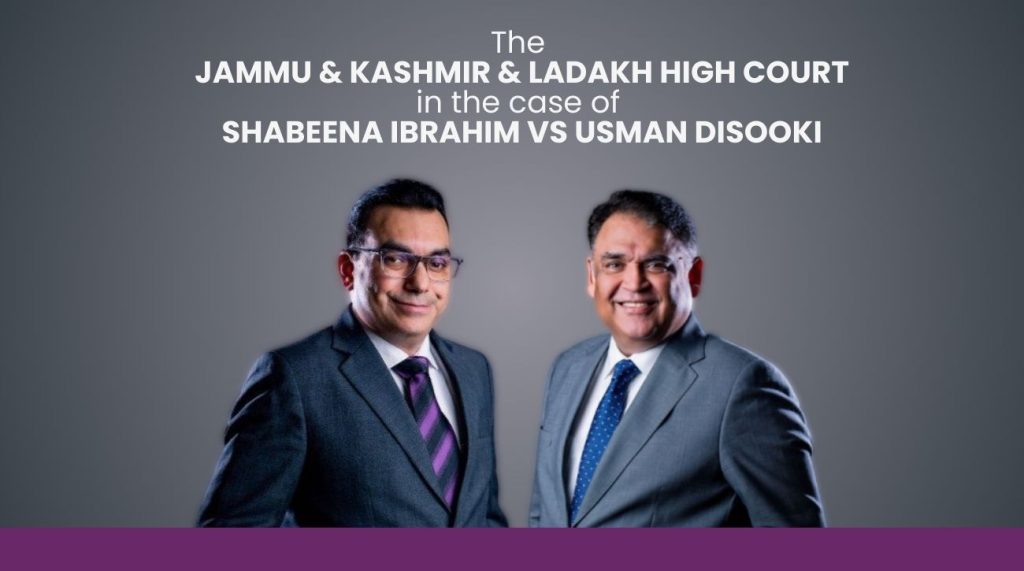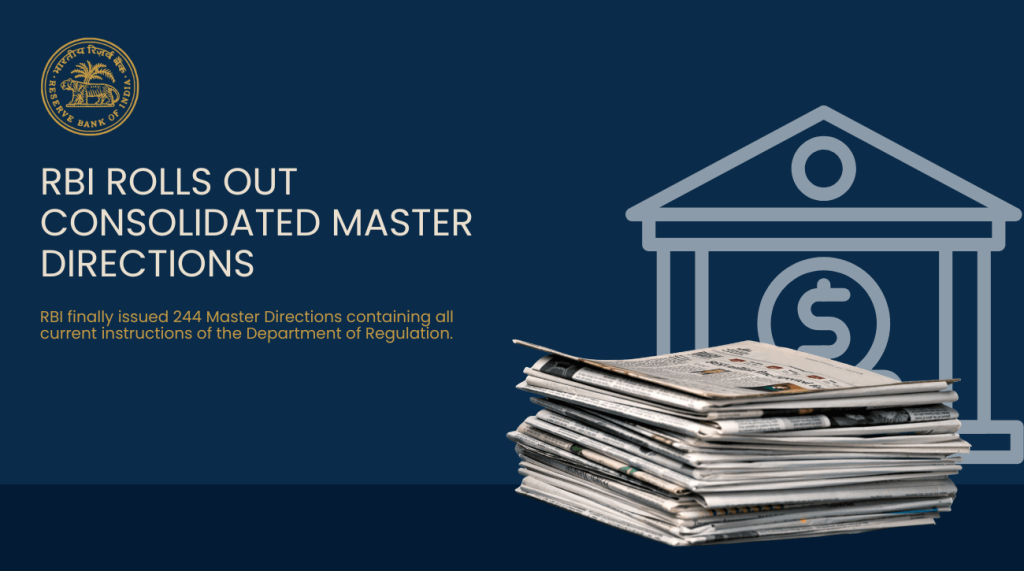Legal Updates (Nov 3 – Nov 08, 2025)
Mere use of the term “arbitration” in a clause is not sufficient to mandate reference to arbitration unless the parties clearly intended to resolve their disputes through arbitration
The Supreme Court in the case of M/s Alchemist Hospitals Ltd. v. M/s ICT Health Technology Services India Pvt Ltd. [2025 INSC 1289] dated November 6, 2025, has held that clauses of the Software Implementation Agreement between the parties did not constitute a valid arbitration agreement under Section 7 of the Arbitration Act, as it lacked the essential conditions of a binding arbitral process.
The arbitration clause in the agreement was as follows:
Any dispute, controversy or claim arising out of or relating in any way to the Agreement/the relationship, including without limitation, any dispute concerning the construction, validity, interpretation, enforceability or breach of the Agreement, shall be resolved by arbitration through senior management comprising respective Chairmen of the two parties (Arbitrators). Should the dispute not be resolved within fifteen (15) days after arbitration, the complaining party shall seek remedies through the courts of law. The demand for arbitration should be made within a reasonable time (maximum 60 days) after the dispute or matter in question has arisen.”
The Court observed that mere use of the word ‘arbitration’ in a clause is not decisive unless the clause reflects an intention to submit disputes to a binding adjudicatory process, and emphasised that the clause lacked the essential elements of an arbitration agreement, including finality, binding effect, and recourse to a neutral adjudicator.
The Court noted that individuals designated as “arbitrators” under the clause are the respective Chairmen of the parties themselves, which made the mechanism more akin to an internal settlement attempt than an independent arbitral process. Ordinarily, arbitration contemplates reference to a neutral third party. Thus, finding no intent between the parties to submit disputes to arbitration, the Court held that the clauses did not qualify as an arbitration agreement under Section 7 of the Arbitration Act.
Please click here to read/ download the original judgment
Imposition of interest retrospectively, or without compliance with the prescribed statutory procedure, would not merely constitute a procedural irregularity but a substantive violation of constitutional guarantees under Articles 14, 19, 21, 265, and 300A of the Constitution of India
The Delhi High Court in the case of Competition Commission of India vs Geep Industries [LPA 727/2024] dated November 01, 2025, has held that any attempt by the CCI to impose interest retrospectively, or without compliance with the prescribed statutory procedure, would not merely constitute a procedural irregularity but a substantive violation of constitutional guarantees under Articles 14, 19, 21, 265, and 300A of the Constitution of India. Further, the levy of interest without the statutory foundation of a valid demand notice would offend both the rule of law and the constitutional prohibition against the deprivation of property without lawful authority.
The Court stated that the imposition of interest on the penalty that is recoverable is contingent upon and triggered by the non-compliance with the Demand Notice, as expressly specified in the Competition Commission of India (Manner of Recovery of Monetary Penalty) Regulations, 2011, and thus, the principle of restitution cannot be invoked in a manner such as to give retrospective operation to the triggering event, namely the Demand Notice itself.
The Court observed that issuance of a demand notice under Regulation 3 and the consequent imposition of interest for default under Regulation 5 form part of a sequential and mandatory statutory process. These provisions nowhere empower the CCI to impose interest retrospectively or from a date preceding the valid service of a demand notice. Since these procedural requirements are both mandatory and chronological, they must be followed in that precise manner alone, and any deviation therefrom renders the levy of interest legally unsustainable.
The Court further observed that no single provision under the Competition Act or the 2011 Regulations authorises the automatic or mandatory accrual of interest merely upon the expiry of the period stipulated in the penalty order. On the contrary, Regulation 3 expressly mandates the issuance of a demand notice in Form I, and interest under Regulation 5 accrues only upon failure to make payment within the time specified in such notice.
Therefore, the Court deprecated the action of the CCI in not issuing a notice to the respondents in Form I, as mandated under Regulation 3 of the 2011 Regulations, before imposing the interest upon the penalty, which is in complete defiance of Regulation 3(2) which categorically provides that the 30-day period for payment shall begin “from the date of service of the demand notice to the enterprise.” Once it is established that no demand notice was ever issued to the respondents, the question of any default in payment does not arise.
Please click here to read/ download the original judgment
The rewriting of the contract by the Arbitral Tribunal in contravention of Section 28(3) of the Arbitration Act is vitiated by patent illegality
The Calcutta High Court in the case of Kolkata Metro Rail Corporation Limited vs. ITD-ITD Cem Joint Venture [AP-COM No. 381 of 2024] dated October 31, 2025, has held that the arbitral tribunal acted in violation of fundamental principles of law by relying on its own professional knowledge instead of tangible evidence, and by applying ‘double standards’ in assessing expert reports filed by the two parties. Thus, the Court set aside the arbitral award passed against the Kolkata Metro Rail Corporation Limited (KMRCL) in its dispute with ITD-ITD Cem Joint Venture, holding that the award was vitiated by perversity, bias, and patent illegality.
On the applicability of the Evidence Act, the High Court held that Section 45 of the Evidence Act has no application in arbitration proceedings since Section 19 of the Arbitration Act, 1996, exempts the arbitral tribunal from strict adherence to the rules of evidence. However, even under such flexibility, the tribunal was bound to assess the evidence on record fairly and uniformly, something it failed to do.
The Court noted that the tribunal had substituted its own professional engineering knowledge for the evidence presented. The tribunal’s reliance on its “engineering point of view” was found to be violative of judicial neutrality. Once appointed as arbitrators, the members were required to adjudicate solely based on material evidence, and importing personal expertise hits at the very foundation of the fundamental policy of Indian law.
The Court held that the tribunal violated Section 18 of the Arbitration Act by accepting the pre-retrieval expert reports produced by ITD, while rejecting the post-retrieval reports of KMRCL. The Court observed that the delay in producing these reports was justified since the Tunnel Boring Machine (TBM) had to be retrieved in pieces over a long period. Discarding these reports on the grounds of delay or authorship was held to be arbitrary and a case of double standards. This unequal treatment strikes at the root of party equality and constitutes patent illegality.
The Court also observed that the tribunal ignored vital clauses of the General and Special Conditions of Contract that squarely placed responsibility for safety, stability, and site operations on the contractor. The contract made it clear that the contractor bore all risks irrespective of the Engineer’s approval. By shifting liability onto KMRCL, the tribunal had “rewritten the contract” in contravention of Section 28(3) of the Arbitration Act. The Court also struck down the tribunal’s declaratory award recognising ITD’s entitlement to future and unquantified monetary claims.
Proceedings under Section 138 of the Negotiable Instruments Act, which presuppose a validly issued cheque, cannot be sustained in circumstances of no valid drawer or account-holder existing in law
The Delhi High Court in the case of Krishan Lal Gulati vs State of NCT of Delhi [Criminal M.C. 7534/2023] dated October 08, 2025, has held that once a company is struck off and stands dissolved, it loses its juristic personality, rendering any act done on its behalf void ab initio unless the company is restored under Section 252 of the Companies Act. Consequently, a cheque issued in the name of or by such a dissolved company cannot be treated as a legally enforceable instrument, since no valid drawer or account-holder exists in law.
Resultantly, the Court held that proceedings under Section 138 of the Negotiable Instruments Act, which presuppose a validly issued cheque, cannot be sustained in circumstances of no valid drawer or account-holder existing in law. Thus, continuation of the trial would serve no legal purpose when the complainant company itself has ceased to exist, as no criminal prosecution can be maintained by or against a dissolved entity.
The Court found that the cheques in question, the subsequent legal notices, and the complaints filed under Section 138 of the Negotiable Instruments Act, 1881, are all actions that occurred after the company’s dissolution. This sequence clearly indicates that the company was non-existent in law at the time of these transactions and, therefore, could not have validly participated in commercial dealings or maintained bank accounts.
Please click here to read/ download the original judgment
Every right of an investor to participate in the management and governance of a joint venture company cannot be converted into an obligation to participate in the management and treatment of a right, as an obligation renders the arbitration award contrary to the contract
The Bombay High Court in the case of Rakesh S. Kathotia vs Milton Global Ltd. [Arbitration Petition No. 544 of 2018] dated November 03, 2025, has clarified that every right of an investor to participate in the management and governance of a joint venture company cannot be converted into an obligation to participate in the management. When an investor invests in a company, he contracts certain rights, and it is completely bestowed on him whether he wants to enforce or waive them.
The dispute at hand is a case of firm findings by the Arbitral Tribunal that one party to the Joint Venture Agreement (JVA) blatantly diverted the business away, wrongly seeking to justify it on the grounds of abandonment, and even raising the objection of limitation, all of which were firmly put down by the Arbitral Tribunal. Yet, the Tribunal victimised the other party by holding that the victim itself needs to be blamed for breach of its rights by not participating in the JVA, and that too when adjudicating a cause of action seeking intervention for that very breach.
The Court noted that on one hand, the Arbitral Tribunal had firmly held that the Vaghani Group had “miserably failed” to show abandonment of the JVA by the Subhkam Group, by ruling that acquiescence is neither pleaded nor synonymous with abandonment. In the same breath, the Arbitral Tribunal has equated the contractual rights of the Subhkam Group with their contractual obligations, which is completely untenable and an implausible view.
While stating that the Arbitral Tribunal had wrongly imported a public law concept of “power coupled with duty” into the domain of private contract, the Court explained that in matters of public law, when legislation provides for a discretionary action on the part of a public authority, it is with a certain legislative objective in mind. On the other hand, in a matter of private contract, the rights and obligations have no wider public interest considerations, and the parties are presumed to contract rights in their own enlightened self-interest. Essentially, the Court pointed out that it is the contracting party’s sovereign and autonomous power to act upon a right or to trust the counterparty by not insisting on enforcing the right.
A Court also observed that “the findings of the Arbitral Tribunal, namely, of failure to prove abandonment; of inability to allege acquiescence; of every moment of conducting competing business being a continuing tort; and yet holding that the tort is not an actionable tort because the party at the receiving end of the tort had purportedly not complied with an obligation, in the teeth of such “obligation” actually being a “right”, are mutually destructive, is writ large on the face of the Impugned Award”.
The Court emphasised that returning an implausible finding that a right is an obligation, the Arbitral Tribunal wrongly denied specific relief and damages, in the teeth of the other findings, which would shock the conscience of any reasonable person applying commercial common sense. Essentially, what has happened is that a party firmly found to have indulged in abject contumacious conduct appears to have been allowed to get away with no consequences whatsoever by the Arbitral Tribunal.
Therefore, the Court concluded that the treatment of a right as an obligation renders the award contrary to the contract. However, while refusing to set aside the award, the Bench directed the parties to agitate their disputes afresh.
Please click here to read/ download the original judgment
The power of the CERC to refer a dispute involving generating companies or transmission licensee for arbitration prevails over the referral powers of a Court or authority other than the CERC, under Sections 8 or 11 of the Arbitration Act
The Delhi High Court in the case of Renew Wind Energy vs Solar Energy Corporation of India [O.M.P.(I) (COMM.) 213/2025] dated November 03, 2025, has held that the power of the Central Electricity Regulatory Commission (CERC) to refer a dispute involving generating companies or transmission licensee for arbitration prevails over the referral powers of a Court or authority other than the CERC, under Sections 8 or 11 of the Arbitration Act. The Court added that the CERC has the exclusive power and prerogative under Section 79(1)(f) of the Electricity Act to refer disputes concerning generating companies or transmission licensee for arbitration.
The Court rejected the petitioner company’s submission that CERC’s jurisdiction is attracted only when a dispute relates to the tariff, and observed that the CERC has the power to refer a dispute, which falls outside the scope of Section 79(1)(a)-(d), for arbitration when there exists an arbitration clause in the agreement involving generating companies or transmission licensee. This power needs to be mandatorily exercised, and the party seeking the referral has, in such a situation, a right to be referred for arbitration.
Additionally, the Court also pointed out that the instructing and briefing counsels/law firms are expected to diligently and sincerely verify authorities before they cite them in a Court. Reliance upon a decision that is under review or appeal, without disclosing such pendency, amounts to a lack of candour to the Court and may mislead the adjudicatory process. The Court observed that the justice delivery system functions on mutual trust between the Bar and the Bench. Each stakeholder, the litigant, the counsel, and the Court, bears a shared responsibility towards upholding its integrity. Any lapse diminishes confidence in the system as a whole.
Please click here to read/ download the original judgment
A consumer complaint before the District Consumer Disputes Redressal Commission is not maintainable once the insolvency proceedings have been admitted and a moratorium is in effect under the IBC
The Bombay High Court in the case of Srei Equipment Finance Limited vs. Rajesh Bajirao Khandewar [Criminal Writ Petition No. 41 of 2025] dated October 17, 2025, has held that a consumer complaint before a District Consumer Disputes Redressal Commission (DCDRC) is not maintainable once the insolvency proceedings of a corporate debtor have been admitted and a moratorium is in effect under the Insolvency and Bankruptcy Code, 2016 (IBC).
The Court examined the relevant provisions of Sections 14 and 31 of the IBC and noted that once a moratorium is declared, “the institution of suits or continuation of pending suits or proceedings against the corporate debtor, including execution of any judgment, decree or order in any court of law, tribunal, arbitration panel or other authority shall be prohibited.”
The Court also observed that Section 31 further clarifies that once a resolution plan is approved by the adjudicating authority, it “shall be binding on the corporate debtor and its employees, members, creditors, including the Central Government, any State Government or any local authority, guarantors, and other stakeholders involved in the resolution plan.”
The Court stated that the company has not been added as a party to the complaint/application made before the District Consumer Commission, and therefore, the said order cannot have a binding effect on the company. Further, allowing the continuation of the consumer proceedings would “render the initiation of proceedings under the IBC redundant. While acknowledging that the respondent was a victim who had paid substantial instalments and lost possession of the machine, the Court held that “law does not permit the respondent to lodge or institute any proceedings against the petitioner company.”
The Court held that a complaint cannot be treated as one confined to deficiency in service, as the Commission directed return of the JCB machine upon payment of dues, which is as good as a monetary decree falling within the definition of ‘property’ under Section 3(27) of the IBC, and therefore, the proceedings were barred under Section 14 of the IBC.



